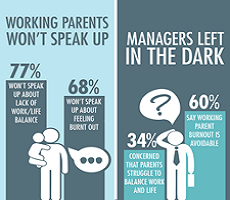October 16, 2015
Sydney leads the way in activity-based working finds global cities report 0
 If employers want to attract the best, they need to create spaces where their staff want to work, because providing an inspiring and enjoyable office is now the most critical, cost-effective way to successfully attract the world’s most talented employees. Knight Frank’s Global Cities: The 2016 Report highlights a shift in thinking by the newest generation of workers who expect the same kind of environment which historically, was the preserve of technology and media firms. This new office combines collaborative spaces with individual work areas, as well as providing amenities that encourage people to think of work as an extension of home. Sydney is leading the way with just under a third (28 percent) of all offices already offering activity-based working (ABW) for employees, where the workspace is specifically designed to suit the whole range of activities which will be accommodated.
If employers want to attract the best, they need to create spaces where their staff want to work, because providing an inspiring and enjoyable office is now the most critical, cost-effective way to successfully attract the world’s most talented employees. Knight Frank’s Global Cities: The 2016 Report highlights a shift in thinking by the newest generation of workers who expect the same kind of environment which historically, was the preserve of technology and media firms. This new office combines collaborative spaces with individual work areas, as well as providing amenities that encourage people to think of work as an extension of home. Sydney is leading the way with just under a third (28 percent) of all offices already offering activity-based working (ABW) for employees, where the workspace is specifically designed to suit the whole range of activities which will be accommodated.













 A series of executive briefings taking place next week in Central London offers you the chance to learn about the next generation of technologies and their impact on the workplace, working practices and office design. Insight readers can enjoy a 15 percent discount by using this
A series of executive briefings taking place next week in Central London offers you the chance to learn about the next generation of technologies and their impact on the workplace, working practices and office design. Insight readers can enjoy a 15 percent discount by using this 
 This week the UK’s Health Secretary found himself at the centre of a storm because of
This week the UK’s Health Secretary found himself at the centre of a storm because of 


 A new study from US based technology research organisation ABI Research claims that sales of tablets as well as their worldwide user base will start to shrink next year for the first time. According to
A new study from US based technology research organisation ABI Research claims that sales of tablets as well as their worldwide user base will start to shrink next year for the first time. According to 













October 12, 2015
How workplace design is more closely reflecting how we actually work 0
by Adrian Campbell • Comment, Flexible working, Workplace design
(more…)